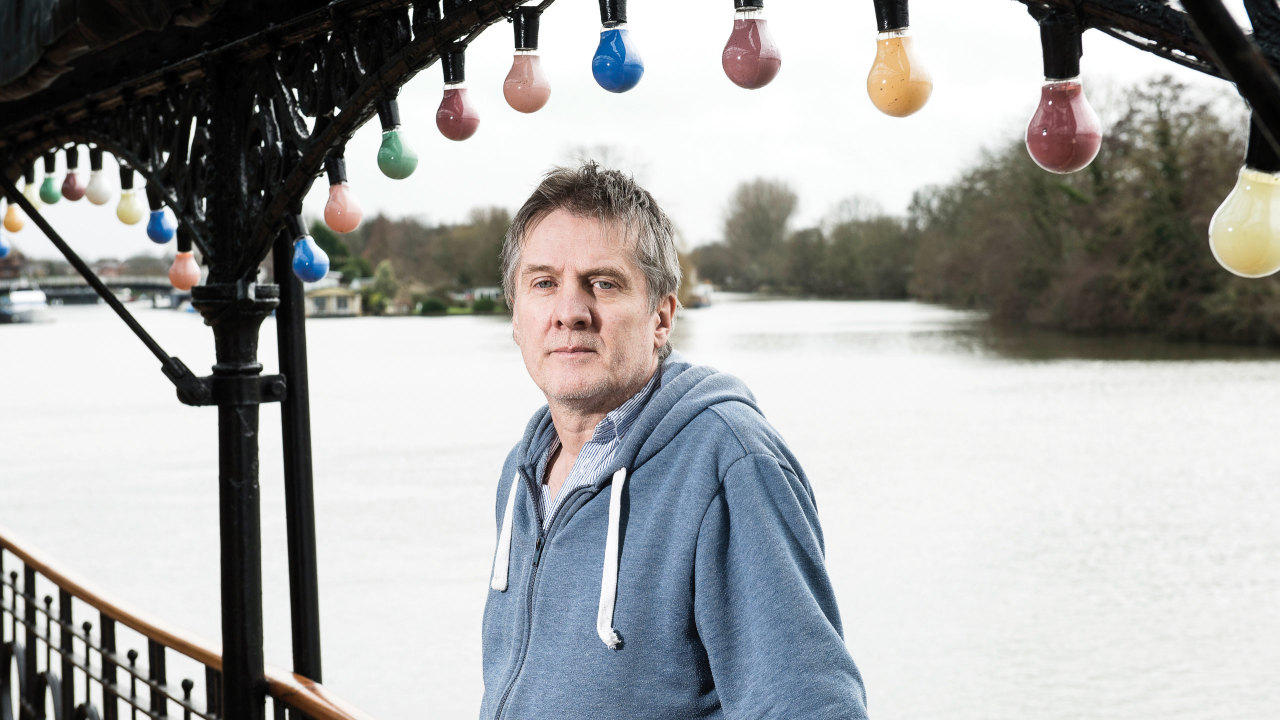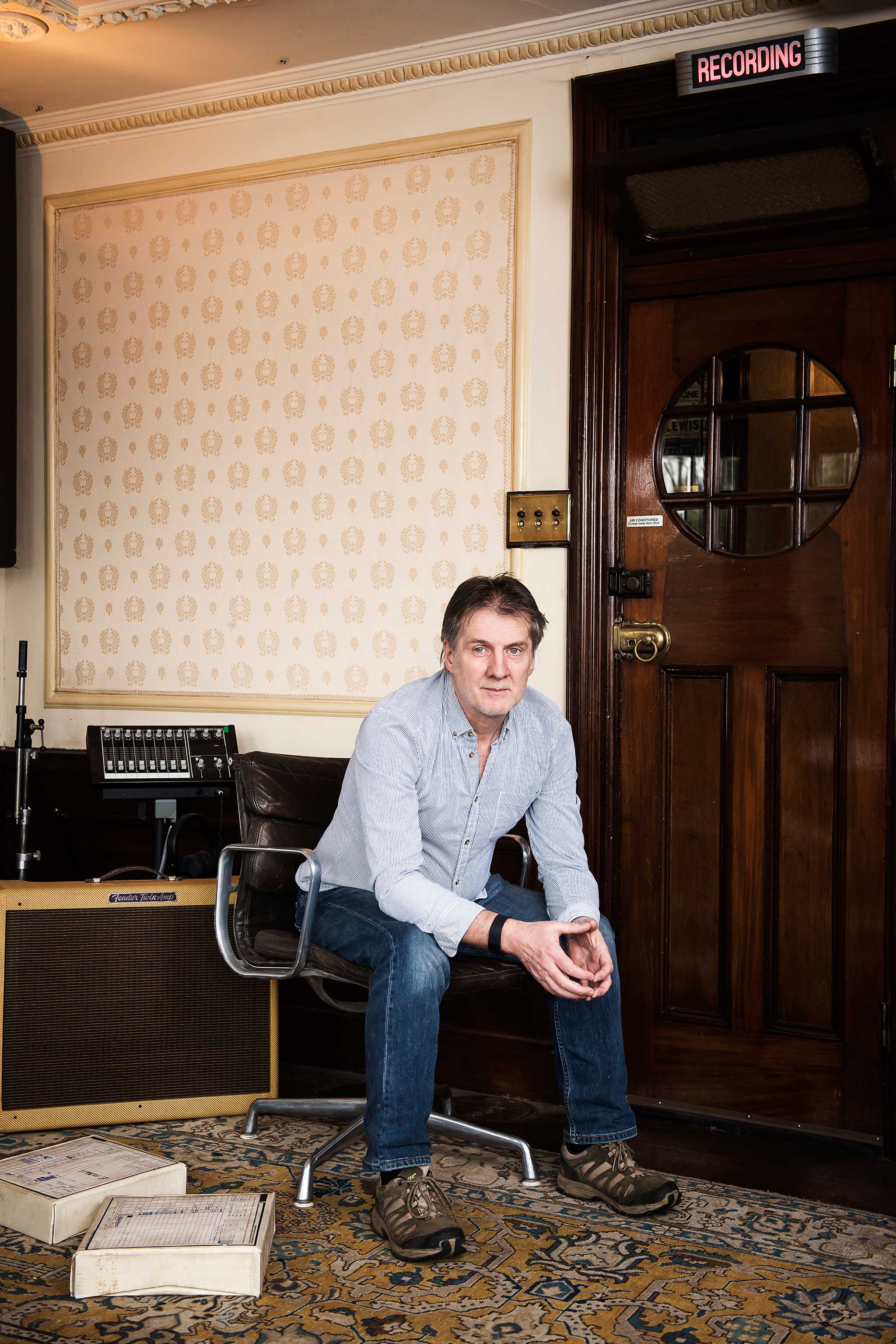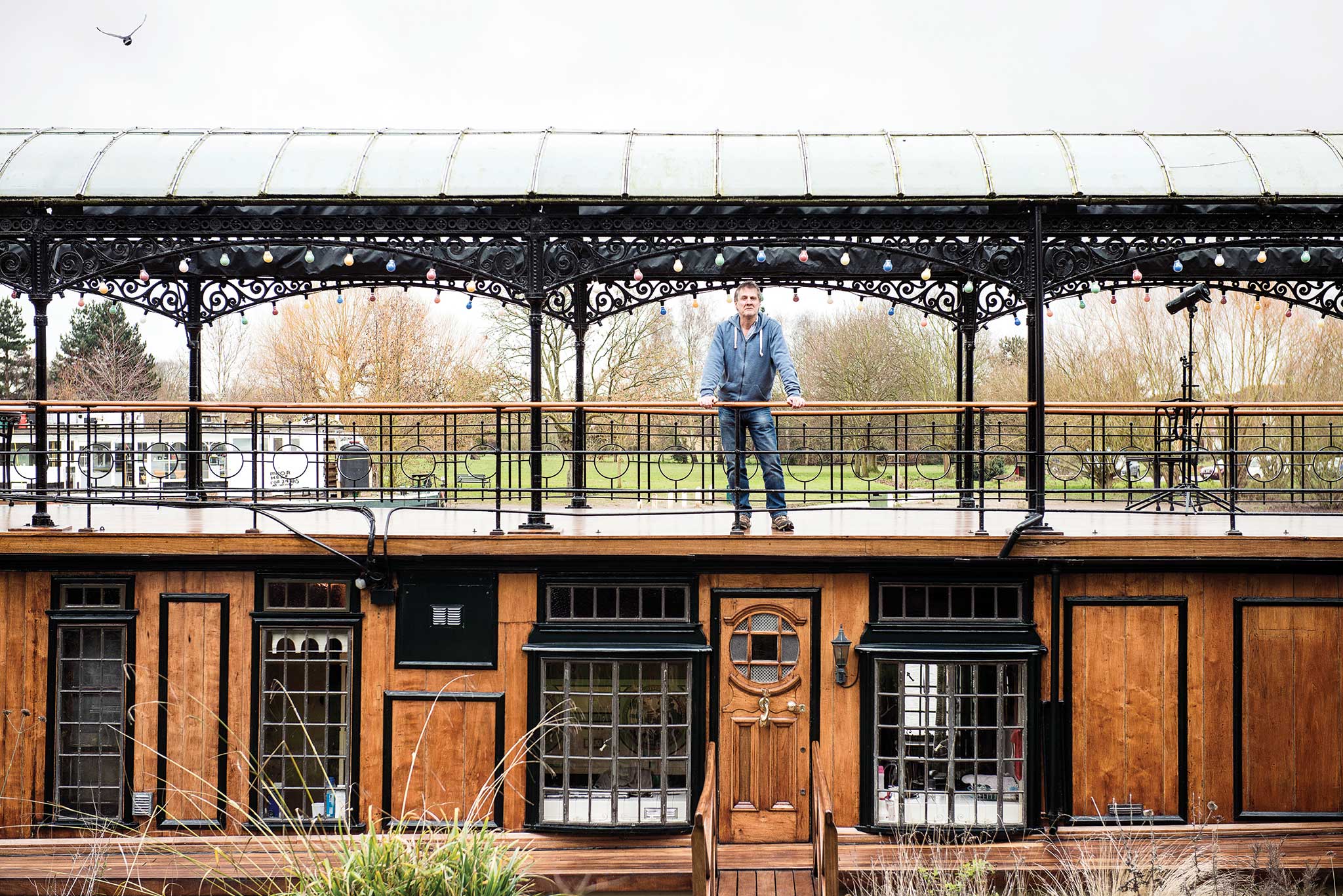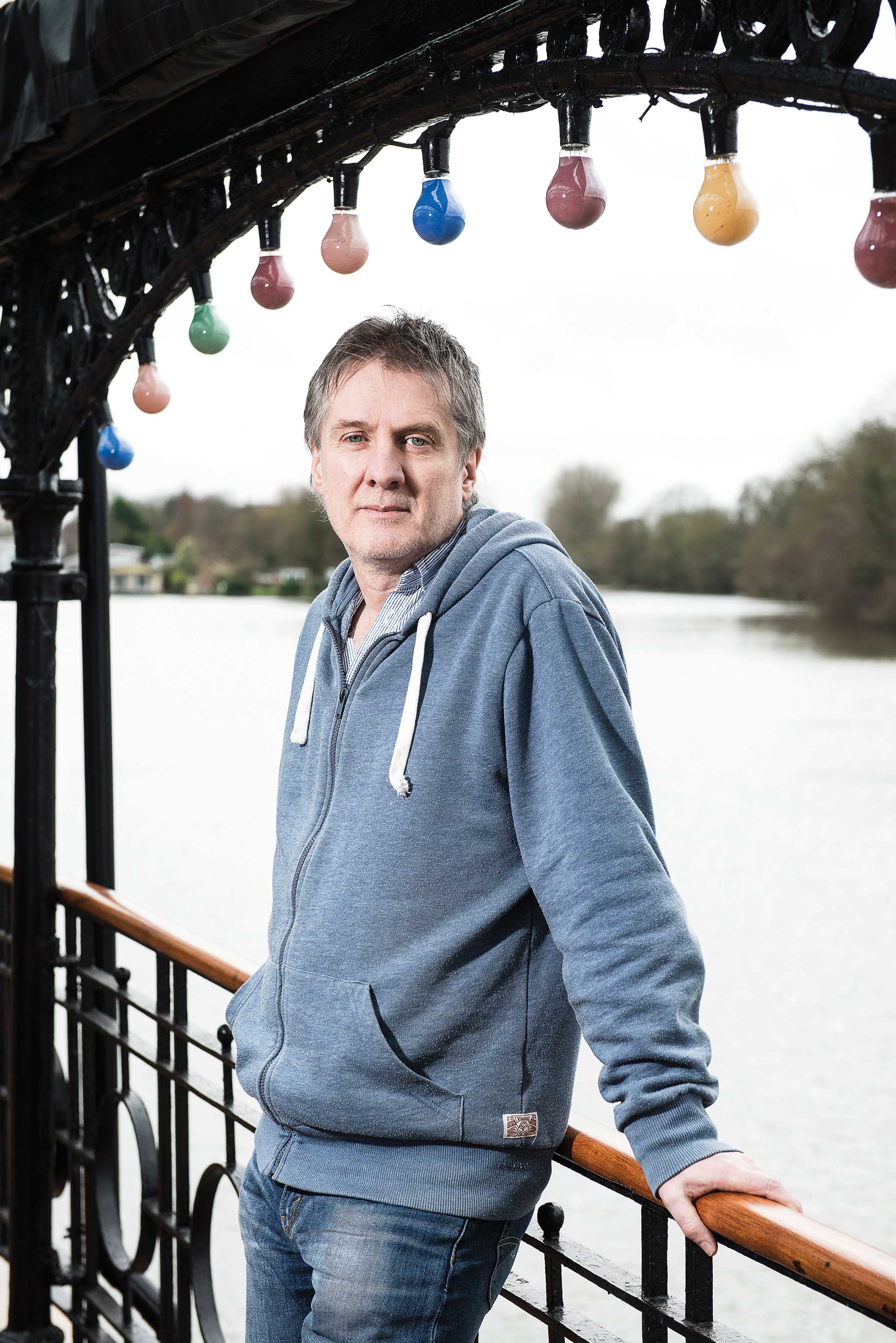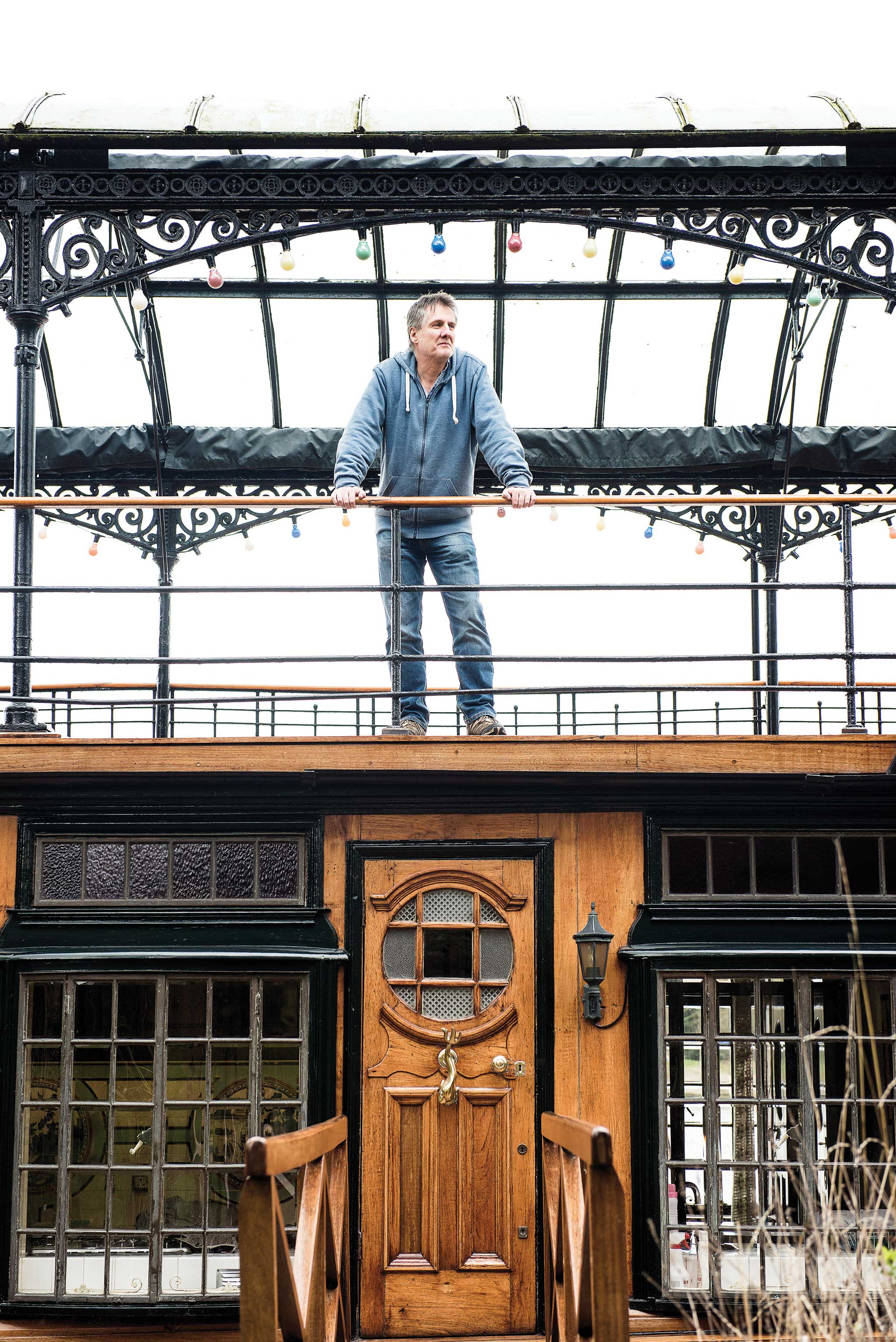Andy Jackson may not be a household name but it’s a racing certainty that you’ve some of his work frequently playing in your abode.
Grammy-nominated for his engineering of both A Momentary Lapse Of Reason and The Division Bell, he first got involved with Pink Floyd as an engineer-mixer on the soundtrack of the 1982 film of The Wall, and has worked on albums for both David Gilmour and Roger Waters since. His CV also contains everyone from The Boomtown Rats (he mixed I Don’t Like Mondays) to Heatwave to Fields Of The Nephilim, and an indication of his standing came when the mammoth Why Pink Floyd? reissue/remaster campaign of 2011‑2012 saw him trusted with the tech, mixing and supervising all the previously unreleased material.
Now, though, Jackson is making his own music as he follows up his solo debut, 2014’s Signal To Noise, with an epic musical journey named 73 Days At Sea. It’ll probably drive him nuts if we say “If you like Pink Floyd, you’ll love this”, but there’s no denying it’s a treat of grandiose atmosphere, stately rhythm and eloquent guitars that will definitely hit the sweet spot for Floydeans. With Jackson singing and playing everything – bar guest appearances from former Van der Graaf Generator sax-man David Jackson and a vocal cameo from Anne-Marie Helder of Panic Room – it may not be an endless river, but it’s certainly a wide, wide ocean.
Inevitably there’s a Pink Floyd association. And yes, that is my sort of music. I’ve been fortunate in my professional life to work with a band I was a huge fan of. Even if I’d never worked with them, I’d have made music something like this.
There are old waves, there are new waves, and there’s the sea. The ocean was the sparking point for Andy’s inspiration. As he spent time travelling back and forth to the coast – notably to Hove, where he was working with Gilmour on The Endless River and Rattle That Lock – he found himself experiencing a sense of nostalgia whenever he drove away.
“As if I’d been revisiting a childhood home,” he says. “It was strange, because I have no clear youthful connection to the sea. I was intrigued by this feeling, this… false nostalgia. Surely, I thought, there’s a word for it. The track Type 1 Error is about that: ‘remembering all the things I’ve never known.’
“As I wrote songs, I kept referencing the sea, without initially realising I was doing it. I quite like the idea of suites, ever since I heard Soft Machine’s Volume Two, and I thought the sea songs might shape into something like that. Yet then it formed its own shape, beyond my intentions, and the album emerged into its true self almost by accident. The entire album is ‘the sea suite’. There’s no overarching narrative, although there are individual tales within. In retrospect, the sea is after all a formless thing, and the islands – the bits of land that poke through – are highly significant.”
If there’s a significance to the choice of 73 days, Jackson downplays it. “Oh, I repurposed a newspaper headline I saw! This researcher in a pod spent 73 days under the water. I liked that, but it’s quite good to remember things slightly wrongly – I turned it into something that seemed to fit better to the music and sounds. And once I was into the process – well, you know how you can buy a new car and then you see that type of car everywhere? Even though they were always around but you never really noticed them before? I started to see references to the sea in everything – ‘all at sea’, ‘lost at sea’ – and I found a kind of liberation in pursuing these themes.”
While the album floats freely with a slow, languid feel, allowing those guitars to stretch out like a cat reclining in the sun, Jackson hopes the record doesn’t overplay its maritime myths and legends. “Oh I’m not really one for the tales of knights of old and all that,” he chuckles. “Prog can overdo that sometimes. If anything, I’m rather self-absorbed. This fascination with fake nostalgia, phantom nostalgia, was my keynote, and then I became very interested in Baudelaire’s poem A Voyage To Cythera, and paintings by the great masters, which regard this fall from bliss. Baudelaire describes this decline from beautiful to awful. It’s like the failure of a relationship: where once was love, he now sees just a hanged man, a corpse with birds pecking his eyes out.”
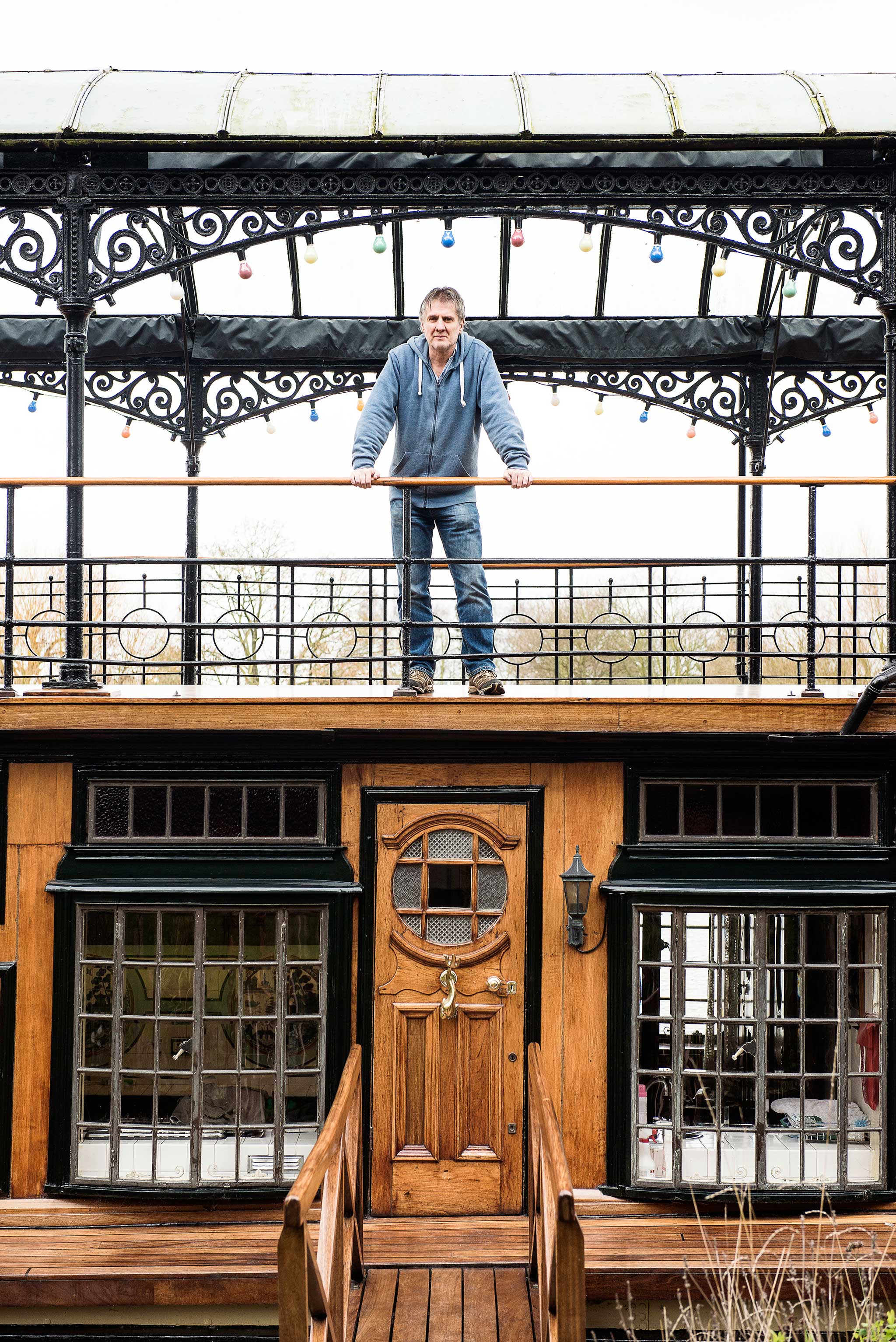
Not your standard lyrical fare, and the album’s 17-minute centrepiece Drownings is also an ambitious, anguished, time-travelling fable, referencing heaven and hell, plague towns, bitterness and hatred. “That came from reality,” begins Jackson. Before we can ask if his daily life contains an alarming quantity of classic opera plot lines, he adds, “But then I extended it, obviously…”
He explains that the story follows the fallout of a funeral, where a loathed man is seen off by a widow who’s glad he’s dead. “Initially it’s told through the observer’s point of view, but then it telescopes into his story, that of a narcissist, and then a section from her view – that’s where Anne-Marie sings. By the end, he’s like a frightened child. It’s insane.
“But it’s saying: no matter how bad life might get, we’d always want another go at it. He’s going: ‘Christ, am I the age I am?’ And you know, that’s partly why I’m doing this now. Making my own music. Stepping out of the background. You get into all this in the first place with the dream of making great music. In some ways I’m being bold, throwing myself into it. I’ve played in bands – The Eden House – and now it’s a question of: can I do this on my own? My previous album told me I could, but it wasn’t perfect, and now I believe I can do better.”
Much as this is abundantly Jackson’s own project, he knows the majority of listeners who gravitate towards giving it a go will be drawn by the Pink Floyd connection. “Oh inevitably there’s an association,” he agrees. “I’ve been fortunate in my professional life to work with a band I was a huge fan of. Even if I’d never worked with them, I’d have made music something like this. I haven’t been ‘picking up tricks’ – it’s just my type of stuff anyway.
“And it’s a double-edged sword when reviews go, ‘Oh, this one is more Gilmour than Waters,’ or the other way around. It makes people notice me. I’m not daft – it’d be silly to distance myself from it. But sometimes it can be difficult for people to get past. So if people look at it for that reason, I just hope they then listen to it on its own terms. I mean, readers of Prog are perhaps most likely to be interested, but in an ideal world I’d love everybody to give it a fair crack of the whip!”
Singing has been a new challenge for a man who says that this aspect of recording has now made him “appreciate producers even more! I’m getting much better, and there’s a biomechanical aspect, developing the musculature to use your voice. You find your voice and you build up its vocabulary. I listened a lot to Nick Drake, the way he melds his voice with the music.
“I hadn’t met Anne-Marie, I just knew her work, and when I needed a female voice I asked her – as a label-mate I admired – and she said sure. As for David Jackson, well, I was a huge Van der Graaf Generator fan. Pawn Hearts was my first serious album. I just loved his playing. It wasn’t that I wanted a saxophone player – I wanted David. I wouldn’t and couldn’t have got anybody else to play like him. Bizarrely, I still haven’t met him! It would be great to work together again, and perhaps earlier in the process, because here he was the last thing to go on, and therefore sort of backed into a corner. I tried to make him more pivotal. He makes it his own anyway though.”
Just as Jackson has made the overall statement of 73 Days At Sea his own. “Well, it’s the tides,” he says. “You can’t help where the sea goes.” He mentions his “big love” of the Peter Gabriel era of Genesis. “The way he jumped between voices, making new characters, very theatrically… I’m not saying I do that, but I hope something of that idea subtly filters into the music here.”
We can’t let Jackson swim away without asking why he penned a song called Legends Of Mysterious Apes. “Oh, that originally stemmed from another odd newspaper headline!” he laughs. “There were these giant chimps in Africa who were reputed to eat lions and howl at the moon. But the song began as just a soppy thing about a relationship. A flight of fancy takes a thing from one point to another.”
Andy Jackson has stepped out of the shadows to take his own flight of fancy and make music of mournful majesty. Not drowning, but waving.
73 Days At Sea is out now on Esoteric Antenna. See Andy Jackson’s website for details.
Pink Floyd’s Most Trusted Ears
Andy Jackson reveals all about working with his musical heroes.

Andy Jackson saw Pink Floyd perform The Dark Side Of The Moon at Wembley in 1974. He was about 15, he says, and doesn’t remember too much except, “I couldn’t see Dave from where I was.” His relationship with the members and ex-members of Pink Floyd is thus a “strange and circular thing”, as he phrases it.
“I’ve been working with them for so long that… it’s fine,” he told us once, discussing his mixing and engineering roles for the band. “They trust me. It’s more like: ‘Oh, a little more of this or that, perhaps?’ Or the time-honoured musician’s comments on a mix: ‘Turn me up.’ We sit down and listen through after I’ve glued it all together, then go back and cycle through any changes till we think it’s done. Then we play it to the band and they give their notes until it really is done. If I played you the version I presented first, then the finished one, 99 per cent of people couldn’t tell the difference.”
It’s a self-effacing task, but Jackson wouldn’t have it any other way. Now, of course, he has his own albums in which to express his own flair. “I worked out a long time ago that a Pink Floyd record isn’t my record. It doesn’t say my name on the front, it says Pink Floyd. You’ll find me somewhere in the booklet at the back! And within the community, the work’s recognised. The public perception doesn’t care who I am – it’s a Pink Floyd record, and that’s fine. I mean, they really are very, very good! I consider myself incredibly fortunate, really, that this is the camp I ended up in. Musically I love it, obviously – it’s completely up my street. An old engineer friend of mine ended up with Mick Hucknall as a long-term client so, y’know, I’m grateful!”
Jackson, whose personal favourite Floyd album is Animals – “the forgotten bastard-child, between the landmarks” – describes David Gilmour as being almost as laid-back as he comes across in public. “Of course, like any other human being, he can get annoyed or impatient on occasion, but generally, yes, he’s very easy-going.” Jackson is Senior Engineer at Gilmour’s studios, and has been involved with every one of the man’s recordings since 1984, also working on the Floyd world tour of ’94. (He also engineered Roger Waters’ 1984 solo debut The Pros And Cons Of Hitchhiking.)
With his focus now set firmly on his own oceanic second solo album, the multi-instrumentalist is setting out to sea like the owl and the pussycat. ‘No longer afraid to stand naked in the rain,’ he sings on the opening track Like You. That’s probably a metaphor, but we can be sure he’ll dance by the light of the moon. Or perhaps, judging by the album’s themes and moods, the dark side of it.
